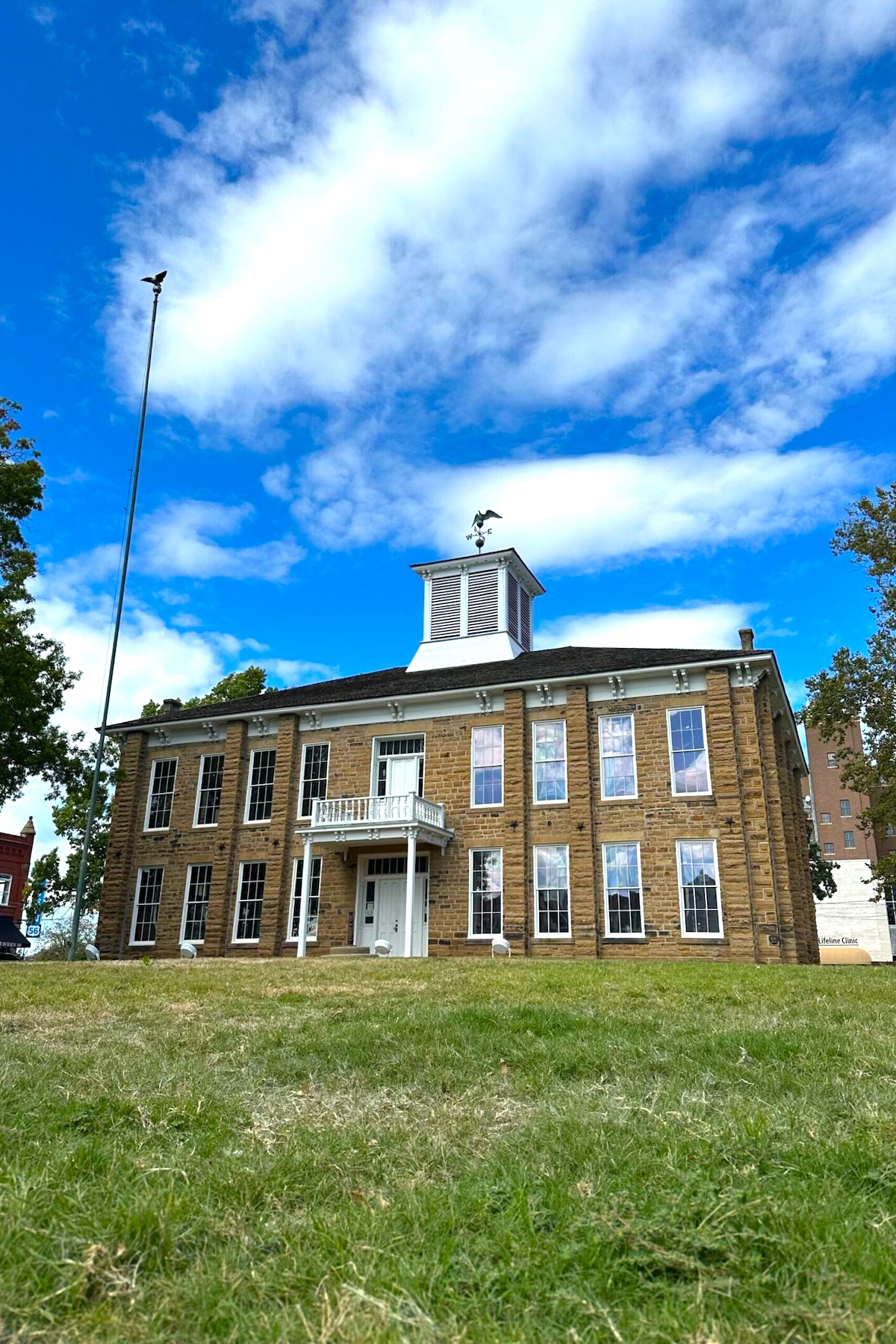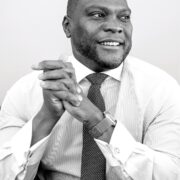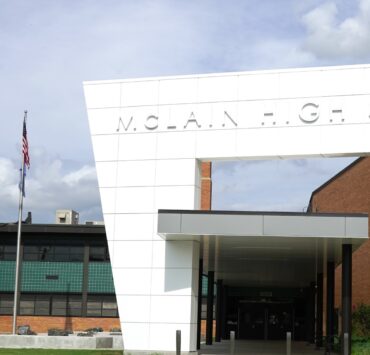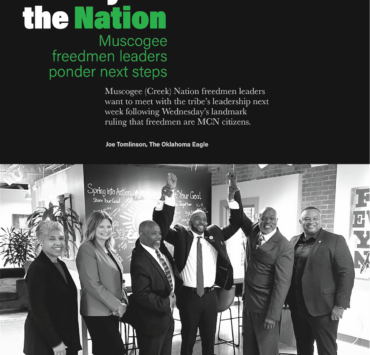
LOCAL
Joe Tomlinson, The Oklahoma Eagle
The Muscogee (Creek) Nation’s Council House located in Okmulgee is a relic of pre-removal Muscogee life. This is where the present day government was formally established. Photo: Tim Landes/The Oklahoma Eagle
The Muscogee (Creek) Nation Supreme Court ruled Wednesday that the Treaty of 1866 requires the tribal nation to include freedmen as citizens. It also said any reference to “by blood” citizenship in the tribe’s constitution is unlawful and void.
“Are the Creek Freedmen, and their descendants, entitled to ‘all the rights and privileges of native [Creek] citizens,’ as guaranteed by the Treaty of 1866, between the United States and the Muscogee (Creek) Nation? Are we, as a Nation, bound to treaty promises made so many years ago? Today, we answer in the affirmative, because this is what Mvskoke law demands,” the order reads.
Rhonda Grayson and Jeffrey Kennedy, both freedmen, filed suit in 2020 after their citizenship applications were denied. Freedmen are the descendants of enslaved people brought to Oklahoma by the Muscogee Nation, which was forcibly relocated by the federal government during the 19th century.
Wednesday’s ruling builds on a September 2023 order by the nation’s district court, which ruled that Grayson and Kennedy should’ve been granted citizenship.
In a statement Wednesday, Damario Solomon-Simmons, Kennedy and Grayson’s lead counsel and a descendant of Muscogee freedmen himself, said the court’s decision recognized the truth.
“This decision affirms our place in the Nation—not as outsiders, but as citizens. We’re ready to walk forward together, guided by our elders, our communities, and our shared hope for what comes next,” Solomon-Simmons said.
Eli Grayson, an enrolled Muscogee citizen who has freedmen ancestors, said the ruling “was the right thing to do.”
“Congress has never said once to the Creek Nation, y’all could put the negroes out. Never once said that,” Grayson said. “They’re just following the law, and if the chief has a problem with it, now you’re going to see who is a racist. You can’t say these people ain’t Creek anymore.”
Muscogee Nation Principal Chief David Hill said in a statement the tribe may ask for a “reconsideration” of the order.
“We are currently reviewing the order to understand its basis as well as its implications for our processes,” Hill said. “It may be necessary to ask for a reconsideration of this order to receive clarity so that we can ensure that we can move forward in a legal, constitutional manner.
The history of freedmen
Following the Civil War, the United States signed treaties with five tribes, including the Muscogee, which granted reservation land to each one and abolished slavery within those nations. Those treaties required formerly enslaved people to be recognized as full tribal citizens.
However, in 1979, the MCN adopted a constitution that restricted citizenship to descendants of people listed as “Indian by blood” on the Dawes Rolls, disenrolling freedmen. Other nations followed suit.
Following Wednesday’s ruling, the Cherokee and Muscogee nations are the only two among the five tribes to grant freedmen citizenship. The Cherokee Nation did in 2021.









